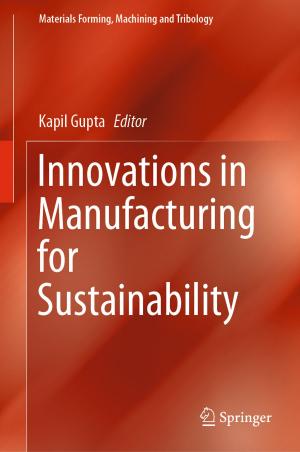The Bubble Theory
Towards a Framework of Enlightened Needs and Fair Development
Business & Finance, Marketing & Sales, Research, Economics, Economic Development| Author: | Min Ding | ISBN: | 9783319009216 |
| Publisher: | Springer International Publishing | Publication: | July 6, 2013 |
| Imprint: | Springer | Language: | English |
| Author: | Min Ding |
| ISBN: | 9783319009216 |
| Publisher: | Springer International Publishing |
| Publication: | July 6, 2013 |
| Imprint: | Springer |
| Language: | English |
The term sustainable development (SD) has now become a ubiquitous idea, philosophy, and guiding principle in our society. Governments, business, NGOs and individuals have embraced the mindset, and even the education institutions talk about graduating young people with sustainability in their DNA. Despite its noble origin, however, sustainable development is a concept that embodies compromise. This compromise has led to a term that is devoid of scientific foundation and actionable guidelines.
In this volume, Min Ding offers an alternative to SD, introducing a framework, which he calls the Bubble Theory, built on three layers: the symbiotic duo (subconscious desires at the self and species levels); enlightened needs (manifested desires of the self and species beyond basic survival and procreation), and human development principles (with fair development as the ideal principle for the present). These fundamental concepts of enlightened needs (EN) and fair development (FD) have profound implications for both the theory and application of new practices in business and policymaking.
The term sustainable development (SD) has now become a ubiquitous idea, philosophy, and guiding principle in our society. Governments, business, NGOs and individuals have embraced the mindset, and even the education institutions talk about graduating young people with sustainability in their DNA. Despite its noble origin, however, sustainable development is a concept that embodies compromise. This compromise has led to a term that is devoid of scientific foundation and actionable guidelines.
In this volume, Min Ding offers an alternative to SD, introducing a framework, which he calls the Bubble Theory, built on three layers: the symbiotic duo (subconscious desires at the self and species levels); enlightened needs (manifested desires of the self and species beyond basic survival and procreation), and human development principles (with fair development as the ideal principle for the present). These fundamental concepts of enlightened needs (EN) and fair development (FD) have profound implications for both the theory and application of new practices in business and policymaking.















